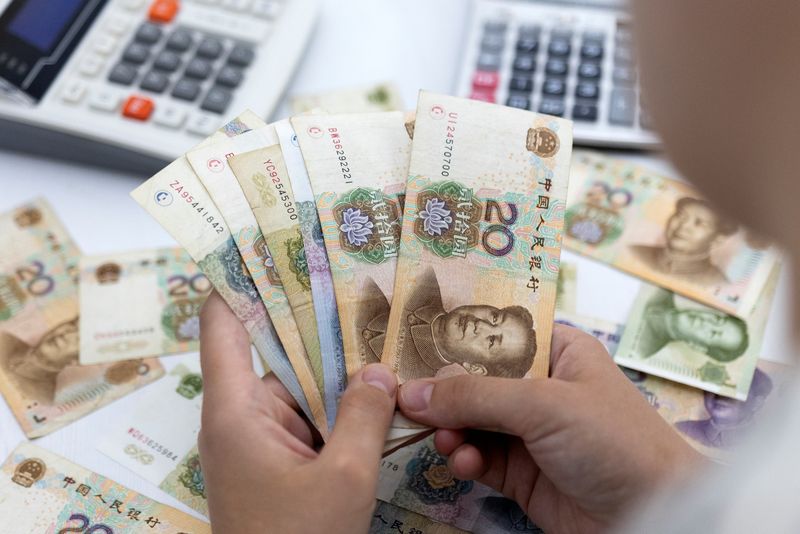HONG KONG (Reuters) - China is considering injecting up to 1 trillion yuan ($142.39 billion) of capital into its biggest state banks to increase their capacity to support the struggling economy, Bloomberg News reported on Wednesday.
The move is part of broad stimulus measures Beijing introduced this week to boost China's ailing economy and sluggish markets.
The funding will mainly come from the issuance of new special sovereign bonds, Bloomberg reported, citing people with knowledge of the matter.
The National Financial Regulatory Administration (NFRA), the country's banking sector regulator, did not immediately respond to a Reuters request for comment.
Top lenders in the world's second-largest economy have been struggling with shrinking margins, faltering profits and rising bad loans amid slowing growth and an unprecedented property sector crisis.
Four of China's five largest lenders reported lower second-quarter profit after responding to a government nudge to lower lending rates in order to stimulate weak loan demand.
The massive capital injection, subjected to changes, would be the first time since the 2008 global financial crisis that the Chinese government has stepped in to replenish its big lenders, the Bloomberg report said.

China's CSI300 blue-chip index reversed early losses to last trade 0.35% higher, while Hong Kong's Hang Seng Index gained 1.5%. The yuan extended its gains and was last up 0.12% at 7.0241 in the onshore market.
($1 = 7.0232 Chinese yuan renminbi)